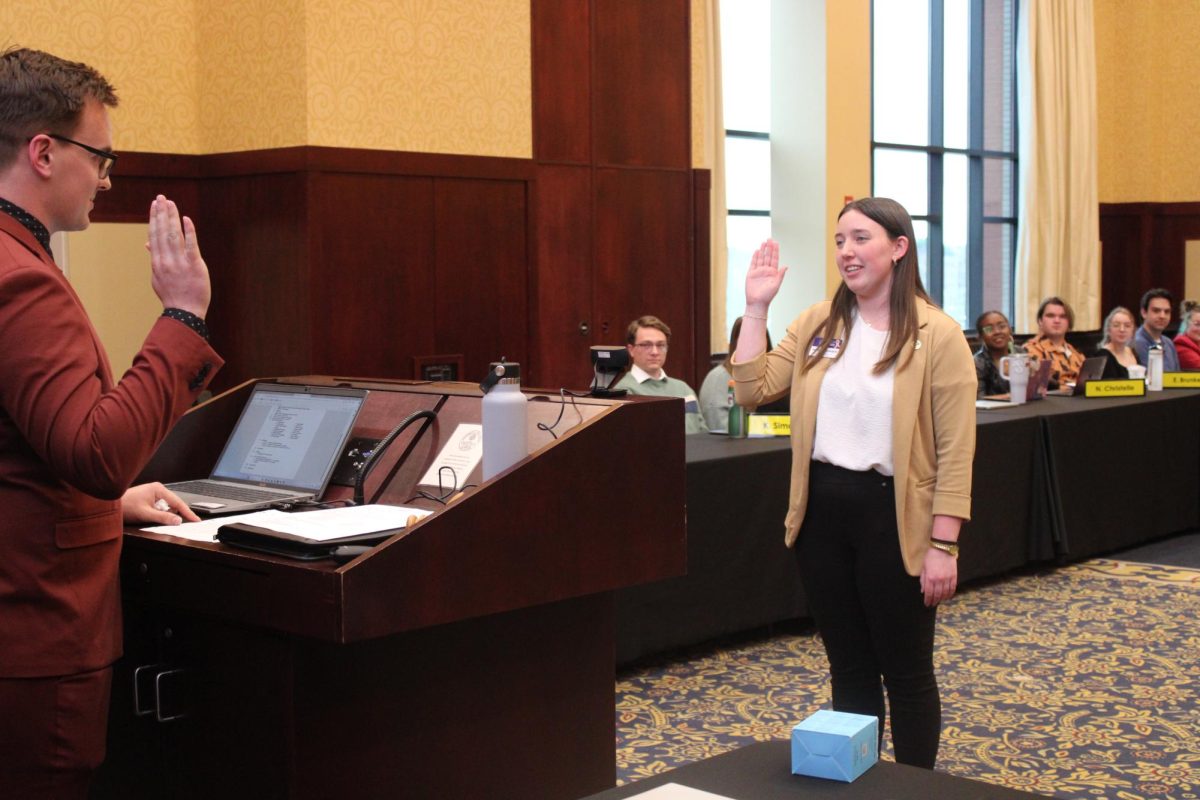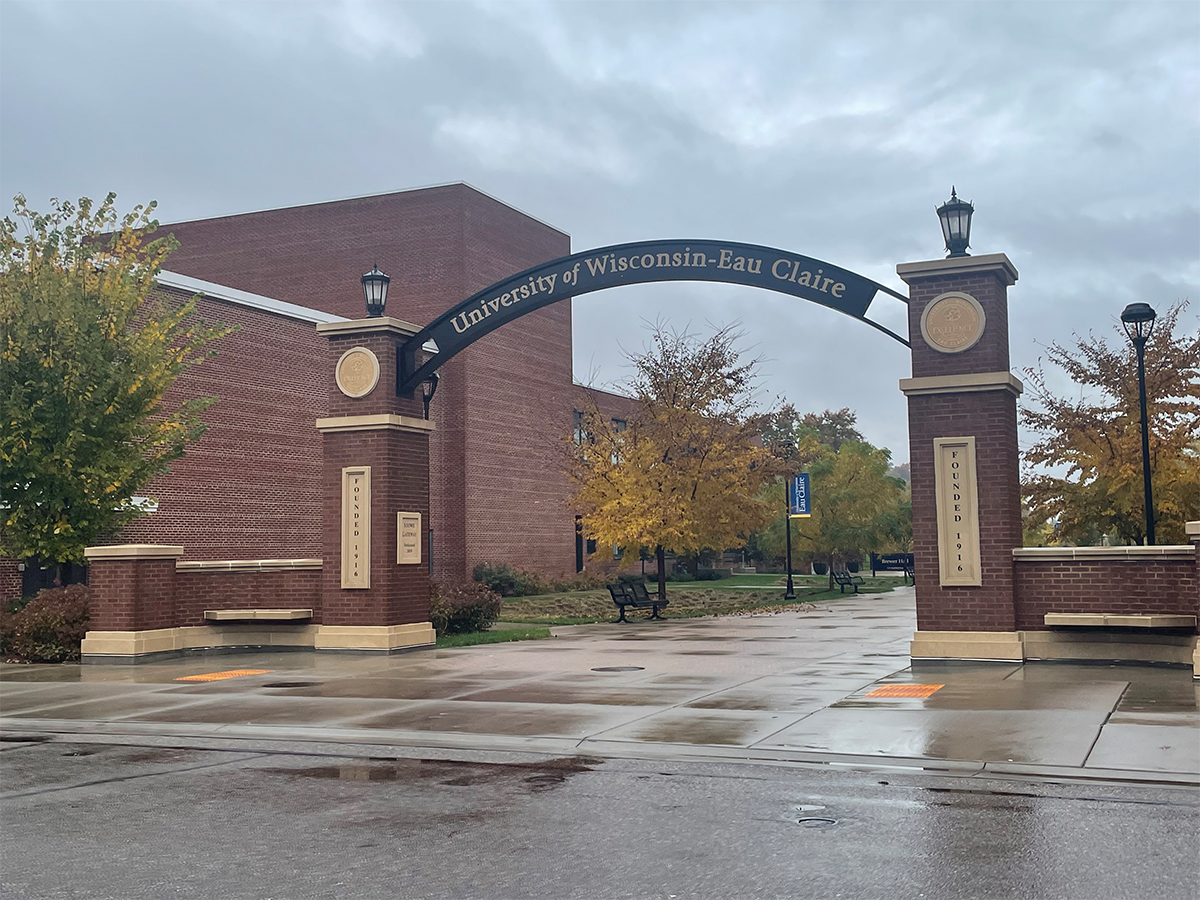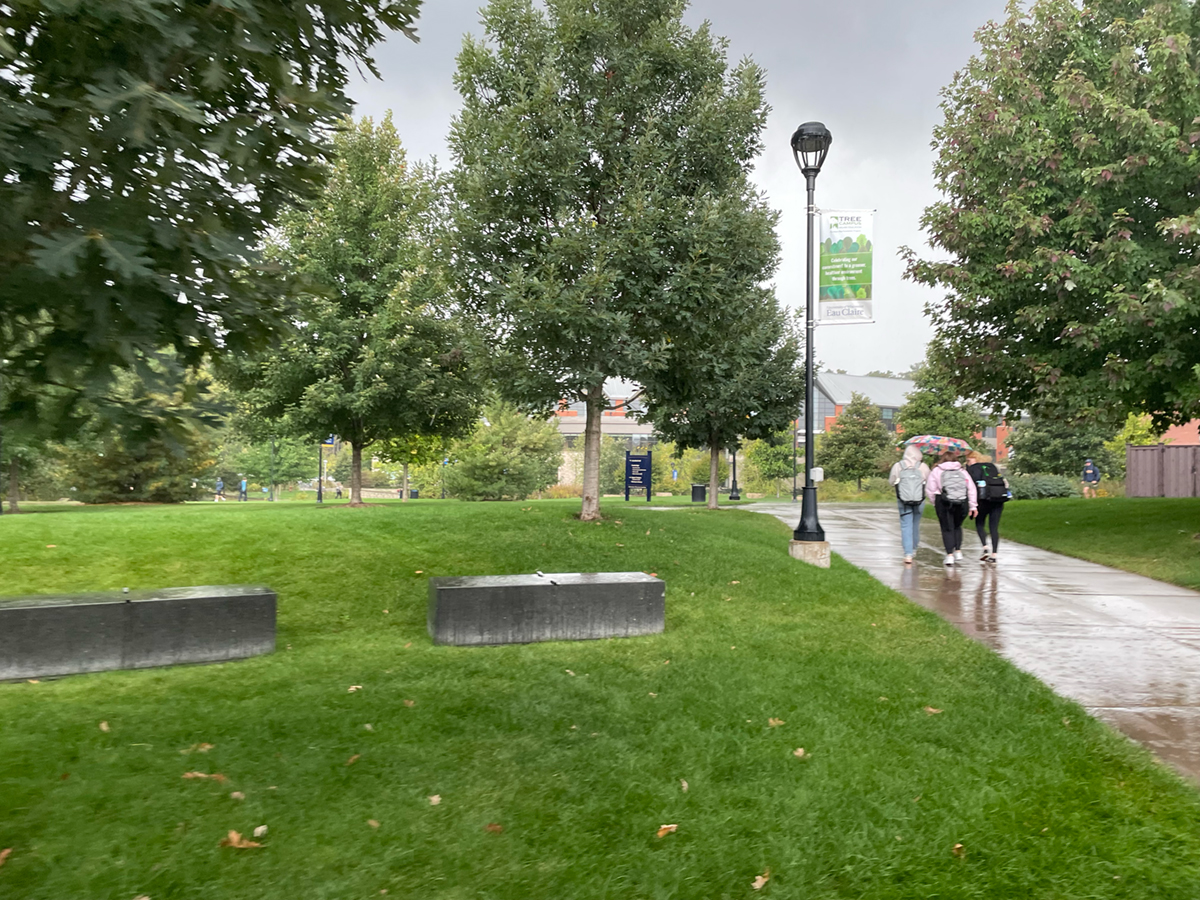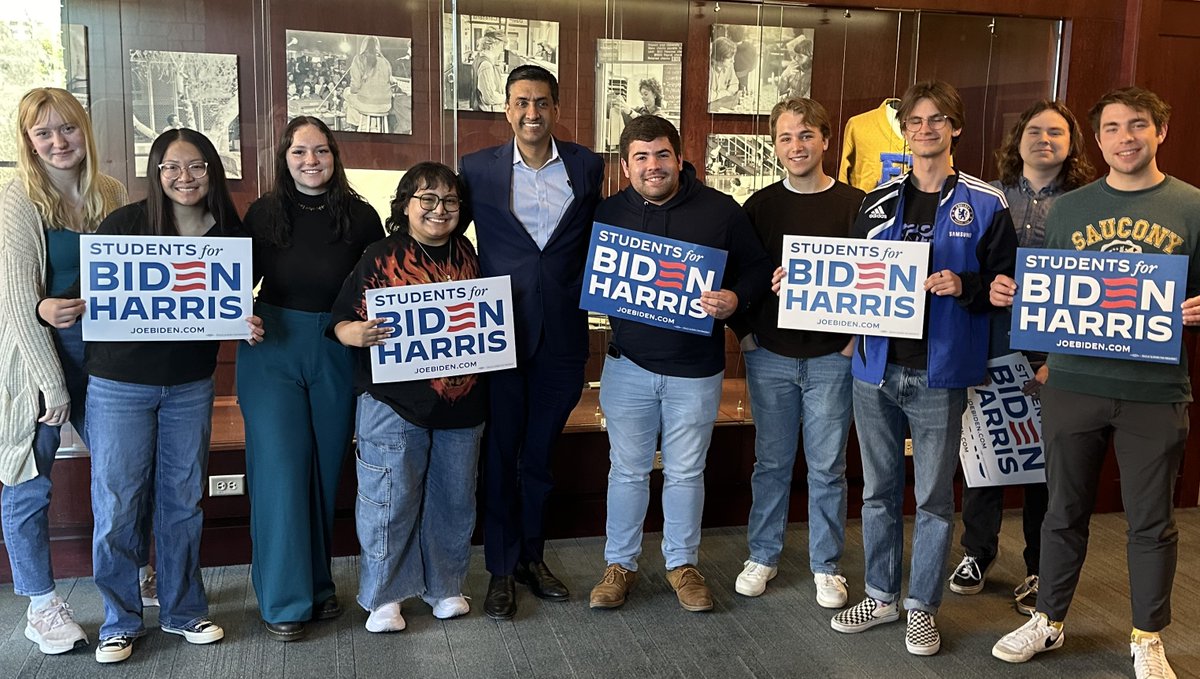Senior Bridget Peterson first moved off campus her junior year. The speech therapy major said she signed a lease with four other people before the group fully committed to living in the house.
After reneging on the contract, the landlord threatened not to return the women’s security deposits. However, after much argument, a consensus finally was reached.
| “I know kids start to glaze over by the end of the lease signing.” –Betty Hatfield Co-owner of B&G Apartments, Mondovi |
“I wish I would’ve had a better idea of what options there are out there,” Peterson said, adding she would recommend students look for better apartments further away from Water Street.
Situations like Peterson’s are avoidable, said Ron Poquette, an attorney with Poquette Lokken & Crosby-Pauls, 306 S. Barstow St.
“I see problems like that all the time,” he said.
Poquette said once students sign a lease, they legally are bound to it, so they shouldn’t sign unless they are sure they want to live on the property.
According to the State Bar of Wisconsin, a tenant is not allowed to end his or her lease before the expiration date written into the contract. But if the tenant does not have a written lease, he or she must present a written notice of termination to the landlord 28 days before leaving the property.
Poquette said many students are unaware the choices they make as renters may affect their chances of becoming homeowners later.
He said he saw a client who had not legally terminated his lease as a student eight years prior. The landlord went to court to get a judgment against the tenants, and the client was unable to get a loan for a house, Poquette said.
Erwin Steiner, an attorney with Steiner & Wright LLC, 2522 Golf Road, and associate professor emeritus of management and marketing, said another important step to avoid tenant-landlord complications is to know the people students are signing with.
“If (students) are signing a joint lease, make sure it’s people they can trust from a financial standpoint,” he said. “If people back out, you are responsible for the money owed.”
Steiner added a common problem student tenants and landlords face is disagreement over the return of the security deposit at the end of the lease.
Landlords have an obligation in Wisconsin to either return the security deposit or provide a detailed list of damages within 21 days after the lease ends, he said.
“In some cases, there are bona fide damages,” Steiner said. “But sometimes a landlord is negligent and fails to return the security deposit.”
According to the State Bar of Wisconsin, landlords are allowed to withhold security deposits for non-payment of rent or utilities or for damages beyond ordinary wear and tear to the premises.
Betty Hatfield, co-owner of B&G Apartments, S323 County Road Y, Mondovi, owns seven buildings in Eau Claire and rents 13 units. She said she advises tenants to avoid confusion by reading the fine print and asking a lot of questions.
“Usually, there’s a lot of paperwork involved, and it’s pretty boring,” Hatfield said.
“I know kids start to glaze over by the end of the lease signing,” she said.
She added it’s not a bad idea to have a third party, such as a parent or an attorney, look over a copy of the lease before signing.
Hatfield also said students should make sure they know what utilities and services are included in the rent and what will cost them extra money.
Additionally, if landlords say they will fix or add something prior to the move-in date, Hatfield said, ask them to put it in writing.
Poquette said having a lawyer look over the lease is a good idea, as the service wouldn’t cost very much.
“It’s worth taking a look at it to make sure everything’s done proper,” he said.






